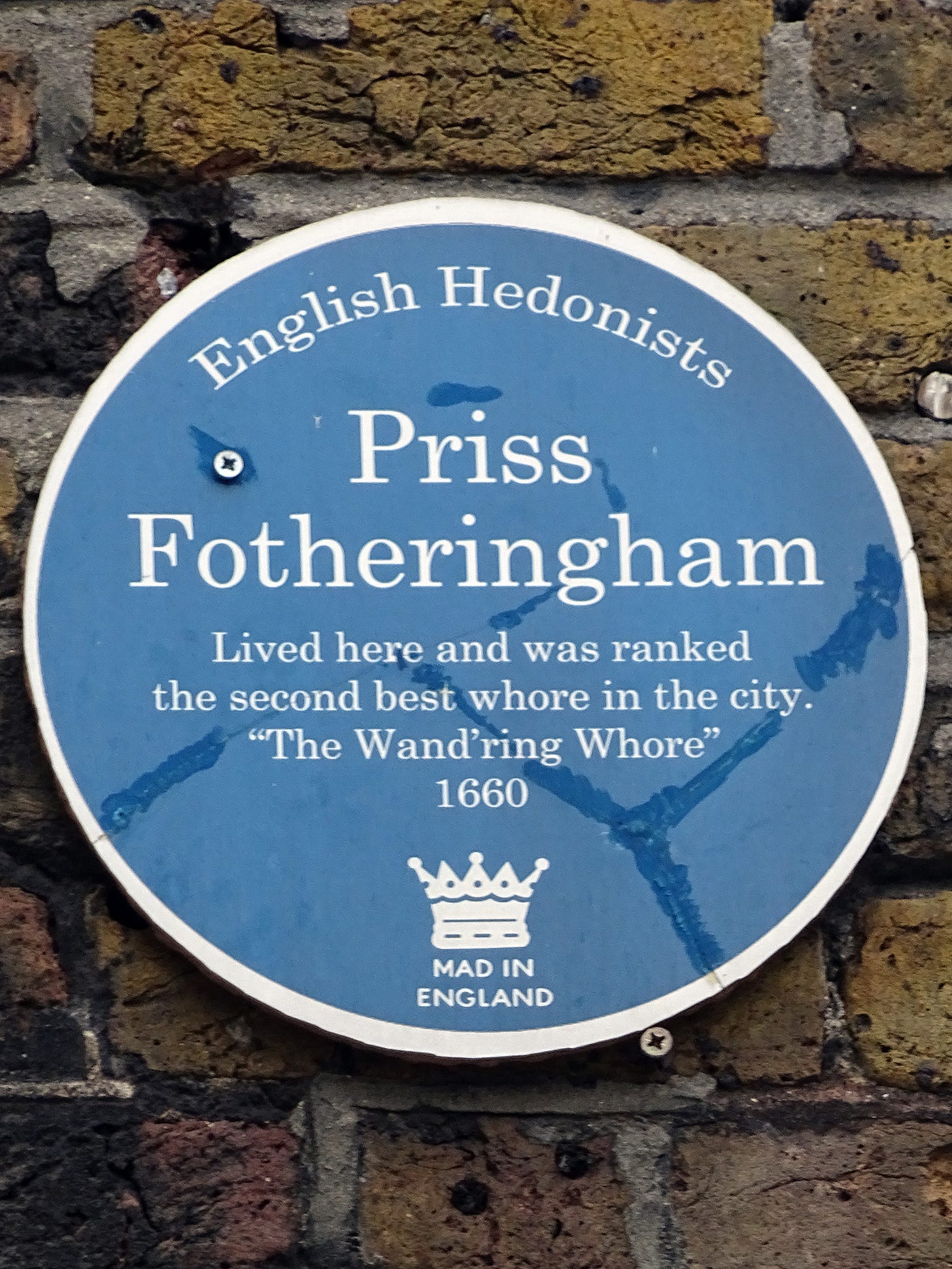After the Restoration of the Stuart monarchy in the kingdoms of England Scotland and Ireland in 1660 the government instituted a policy of rigid censorship.
The Press Act of 16621 decreed that Printing presses were not to be set up without notice to the Stationers' Company. A Surveyor of the Press was officially appointed in 1663.2 To support him in the control of anti-royalist expression, he was aided by informers— Messengers of the Press.
A king's messenger had power by warrant of the king or a secretary of state to enter and search for unlicensed presses and printing.3 Severe penalties by fine and imprisonment were denounced against offenders.
Although the main focus was prevention of the publication of dissenting writings, publications judged obscene could be seized and printers fined as well.
Messengers had the power to:
"search all houses and shops where he shall know or suspect any books or papers to be printed, bound or stitched, especially printing houses, booksellers' shops and ware houses and bookbinders' houses and shops, to examine whether what is printing, binding or stitching there be licensed and to demand at sight license and to seize upon any unlicensed books with the offenders and bring them before the Secretary or a justice to be proceeded against according to law and in case he find any unlicensed books which he shall suspect to contain matters contrary to the doctrines or discipline of the Church of England or against the state or government to seize such books and bring them before the Archbishop of Canterbury and Bishop of London or one of them or before a Secretary of State."4
Included were books judged to be obscene or libertine such as The Wandering Whore5 and other books of this nature.6 Priss Fotheringham, the sex-worker on whom The Wandering Whore was modelled, is memorialized at the corner of Whitecross Street and Old Street in East London.7
An Act of the Parliament of England (14 Car. II. c. 33)Full-title: "An Act for preventing the frequent Abuses in printing seditious treasonable and unlicensed Books and Pamphlets and for regulating of Printing and Printing Presses."
Dunan-Page, Anne and Beth Lynch (eds), Roger L'Estrange and the Making of Restoration Culture (Aldershot, Ashgate, 2008),
Rostenberg, Leona. “Robert Stephens, Messenger of the Press: An Episode in 17th-Century Censorship.” The Papers of the Bibliographical Society of America 49, no. 2 (1955): 131–52.
Ibid.
THEODIDACTUS, Eugenius, and John GARFIELD. The Ladies Champion, Confounding the Author of the Wandering Whore, by Eugenius Theodidactus ... Scribler of That Imfamous [Sic] Piece of Non-Sense, Advice to a Daughter, against Advice to a Son. 1660.
Foxen, David (1963). “Libertine Literature in England, 1660-1745, The Book Collector 12 no. 1: 21- 35 (spring).
Whitecross Street Art and a very naughty lady. (2019). Symbols and Secrets.





Just wow.
It is a funny coincidence that a conversation about Shirley Temple as a little tart took place on the current Greenwald forum this morning:
William Whitten -- Writes ·3 hr ago
Discussing the “secret and more adult” appeal of Shirley Temple, Graham Greene wrote in his review of Wee Willie Winkie in 1937, “Her admirers—middle-aged men and clergymen—respond to her dubious coquetry, to the sight of her well-shaped and desirable little body, packed with enormous vitality, only because the safety curtain of story and dialog drops between their intelligence and their desire.” He also noted her “neat and well-developed rump” and “dimpled depravity.” Twentieth Century Fox sued for libel, Greene fled to Mexico, and a court ordered a settlement of 3,500 pounds.
______________________
Those who read the New York Times obituary of Shirley Temple yesterday may have stopped short at a jarringly inadequate segue:
Not everyone was a Shirley Temple fan. The novelist Graham Greene, who was also a film critic, was sued by 20th Century Fox for his review of “Wee Willie Winkie” in the magazine Night and Day, which he edited. In the review, he questioned whether she was a midget and wrote of her “well-shaped and desirable little body” being served up to middle-aged male admirers.
The owners of a child star are like leaseholders—their property diminishes in value every year. … Miss Shirley Temple’s case, though, has peculiar interest: Infancy is her disguise, her appeal is more secret and more adult. Already two years ago she was a fancy little piece (real childhood, I think, went out after The Littlest Rebel). In Captain January she wore trousers with the mature suggestiveness of a Dietrich: her neat and well-developed rump twisted in the tap-dance: her eyes had a sidelong searching coquetry.
Now in Wee Willie Winkie, wearing short kilts, she is completely totsy. Watch her swaggering stride across the Indian barrack-square: hear the gasp of excited expectation from her antique audience when the sergeant’s palm is raised: watch the way she measures a man with agile studio eyes, with dimpled depravity. Adult emotions of love and grief glissade across the mask of childhood, a childhood skin-deep.
It is clever, but it cannot last. Her admirers—middle-aged men and clergymen—respond to her dubious coquetry, to the sight of her well-shaped and desirable little body, packed with enormous vitality, only because the safety curtain of story and dialogue drops between their intelligence and their desire. …
Graham’s insistence on the sexual subtext of Shirley Temple films wasn’t a one-time event. The year previously, Greene had written a review of Captain January in the Spectator (also reprinted in The Graham Greene Film Reader) in which he wrote that “some of [Temple’s] popularity seems to rest on a coquetry quite as mature as Miss Colbert’s and on an oddly precocious body as voluptuous in grey flannel trousers as Miss Dietrich’s.” But it was the review of Wee Willie Winkie that spurred 20th Century Fox to action: The review hadn’t been published in the U.S., but the studio and Temple’s representatives sued Greene and Night and Day in British court for libel.
https://slate.com/culture/2014/02/graham-greene-and-shirley-temple-what-to-make-of-the-novelists-sexual-review-of-wee-willie-winkie.html
\\][//